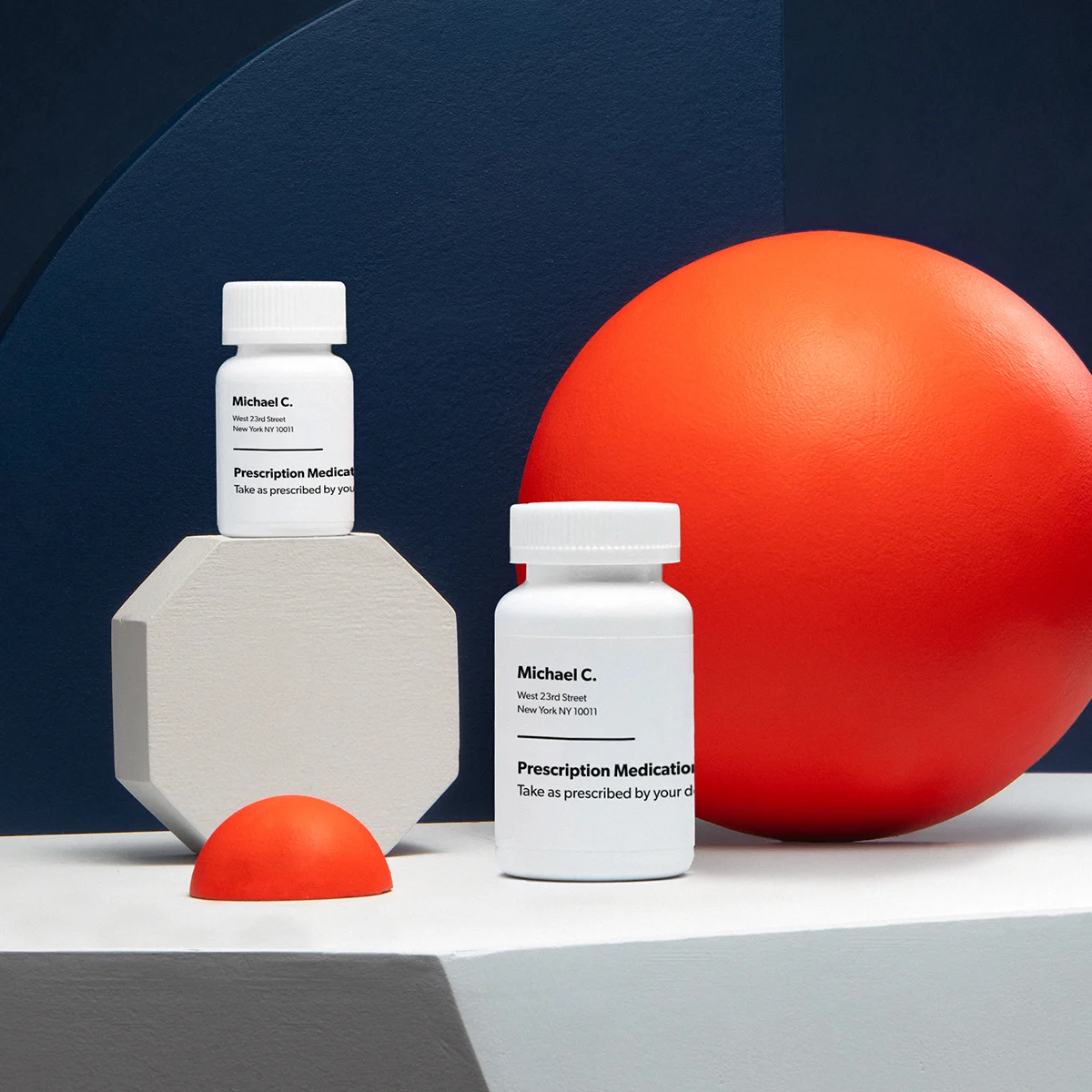Here's what we'll cover
Here's what we'll cover
Here's what we'll cover
If you’ve dealt with a herpes outbreak, you probably wished it would immediately go away and never come back.
Herpes can’t be cured, but outbreaks can be managed. In some people, the virus is entirely dormant, which means they don’t have outbreaks or have any symptoms. For people with HSV-2, the virus commonly associated with genital herpes, only about 20% of people show symptoms (Wilson, 2021).
Even for those who do experience symptoms, genital lesions aren’t common. Most people diagnosed with genital herpes report non-specific symptoms like itching and irritation (Mathew, 2020).
Getting rid of the herpes virus is tricky because it can hide away in your cells and lay dormant for months or even years (Ike, 2020). Eventually we may have a vaccine for herpes, but that’s something researchers are still working on.
How do you manage a herpes outbreak?
Antiviral medications are effective at managing herpes symptoms and partially controlling further outbreaks.
You’ll likely be recommended acyclovir, valacyclovir (brand name Valtrex), or famciclovir—each of which has been proven to help manage genital herpes infections in clinical trials (CDC, 2015). These are all pills taken orally. For those who have frequent outbreaks, these antiviral medicines can reduce how often they occur by 70-80%.
Many people on antiviral therapy report never experiencing herpes symptoms (CDC, 2015). These drugs work by preventing the virus from spreading within your body, although medication can’t prevent spreading to other people (NIH, 2019).
For oral herpes, antiviral pills are often preferred over topical products as creams have to be applied multiple times a day, and research has found topical treatments less effective as pills (Wald, 2020). You can also use cold compresses and over-the-counter pain relievers, such as acetaminophen or ibuprofen, to manage discomfort.
Herpes outbreaks don’t necessarily need treatment, but immediately addressing them can help shorten how long your symptoms last (Albrecht, 2019). The very first outbreak you have after being infected does require medical treatment, but any future outbreaks usually go away on their own.
It’s still a good idea to have antiviral medication on-hand to use within the first 24 hours of symptoms since these drugs can shorten how long outbreaks last (Albrecht, 2019).
Valacyclovir Important Safety Information: Read more about serious warnings and safety info.
Outbreak prevention: avoiding triggers
Avoiding common triggers is another way to help manage herpes outbreaks.
Herpes outbreaks can be triggered by anything that “distracts” your immune system. The virus is then able to enter your cells and start creating more virus materials (Yan, 2020). That sounds scary, but it just means the virus isn’t using this material meaning you aren’t likely to experience symptoms.
Certain triggers, though, can cause the virus to start producing more of itself even if it has been dormant until that point. That’s what causes an outbreak. Researchers found that the immune systems of mice essentially lose control of any herpes viruses when a new type of bacteria or virus enters their body, and they believe this holds true in humans as well (Campbell, 2012).
Stress is also a major trigger of a herpes outbreak. Studies have found that psychological stress, especially when caused by extreme emotional upset, often kick starts the process leading to an outbreak (Yan, 2020).
Fever and sunlight are common triggers of oral herpes infections, while friction from tight clothing, sex, menstruation, and stress are the most common triggers for genital herpes outbreaks (Lautenschlager, 2020).
DISCLAIMER
If you have any medical questions or concerns, please talk to your healthcare provider. The articles on Health Guide are underpinned by peer-reviewed research and information drawn from medical societies and governmental agencies. However, they are not a substitute for professional medical advice, diagnosis, or treatment.
References
Albrecht, M. A. (June 11, 2019). Patient education: Genital herpes (Beyond the Basics). Retrieved Feb. 26, 2021 from https://www.uptodate.com/contents/genital-herpes-beyond-the-basics/print
Campbell, J., Trgovcich, J., Kincaid, M., Zimmerman, P. D., Klenerman, P., Sims, S., et al. (2012). Transient cd8-memory contraction: A potential contributor to latent cytomegalovirus reactivation. Journal of Leukocyte Biology, 92(5), 933-937. doi:10.1189/jlb.1211635. Retrieved from https://jlb.onlinelibrary.wiley.com/doi/full/10.1189/jlb.1211635
Centers for Disease Control and Prevention (CDC). (June 5, 2015). Sexually Transmitted Diseases Treatment Guidelines. Retrieved from https://www.cdc.gov/mmwr/pdf/rr/rr6403.pdf
Centers for Disease Control and Prevention (CDC). (August 28, 2017). Std facts - genital herpes. Retrieved Feb. 05, 2021 from https://www.cdc.gov/herpes/about/?CDC_AAref_Val=https://www.cdc.gov/std/herpes/stdfact-herpes.htm
Ike, A. C., Onu, C. J., Ononugbo, C. M., Reward, E. E., Muo, S. O. (2020). Immune Response to Herpes Simplex Virus Infection and Vaccine Development. Vaccines (Basel), 8(2), 302. doi:10.3390/vaccines8020302. Retrieved from https://www.ncbi.nlm.nih.gov/pmc/articles/PMC7350219/
Lautenschlager S. (2020) Human Herpes Viruses. In: Plewig G., French L., Ruzicka T., Kaufmann R., Hertl M. (eds) Braun-Falco´s Dermatology. Springer, Berlin, Heidelberg. doi:10.1007/978-3-662-58713-3_9-1. Retrieved from https://link.springer.com/referenceworkentry/10.1007%2F978-3-662-58713-3_9-1
Mathew, J. J., Sapra, A. (November 20, 2020). Herpes Simplex Type 2. StatPearls. Retrieved from https://www.ncbi.nlm.nih.gov/books/NBK554427/
National Institutes of Health (NIH). (November 15, 2019). Acyclovir: Medlineplus drug information. Retrieved Feb. 4, 2021 from https://medlineplus.gov/druginfo/meds/a681045.html
Wald, A., & Johnston, C.. (December 17, 2020). Treatment and prevention of herpes simplex virus type 1 in immunocompetent adolescents and adults. Retrieved Feb. 26, 2021, from https://www.uptodate.com/contents/treatment-and-prevention-of-herpes-simplex-virus-type-1-in-immunocompetent-adolescents-and-adults
Wilson M., Wilson P. J. K. (2021) Genital Herpes. In: Close Encounters of the Microbial Kind. Springer, Cham. doi: 10.1007/978-3-030-56978-5_29. Retrieved from https://link.springer.com/chapter/10.1007/978-3-030-56978-5_29
World Health Organization (WHO). (2020). Massive proportion of world's population are living with herpes infection. Retrieved Feb. 26, 2021 from https://www.who.int/news/item/01-05-2020-massive-proportion-world-population-living-with-herpes-infection
Yan, C., Luo, Z., Li, W., Li, X., Dallmann, R., Kurihara, H., et al. (2020). Disturbed Yin–Yang balance: Stress increases the susceptibility to primary and recurrent infections of herpes simplex virus type 1. Acta Pharmaceutica Sinica B, 10(3), 383-398. doi:10.1016/j.apsb.2019.06.005. Retrieved from https://www.sciencedirect.com/science/article/pii/S2211383519302692










